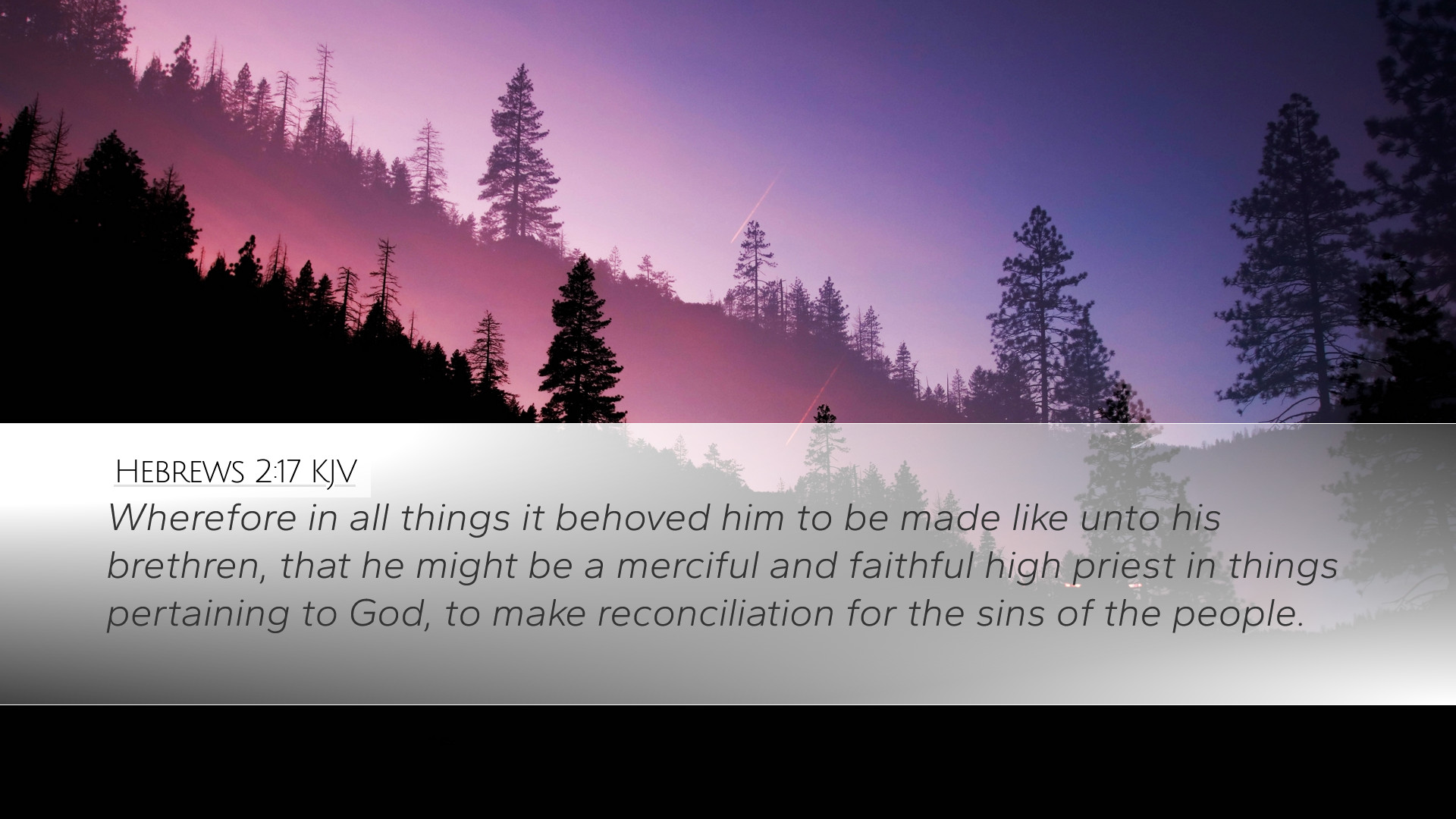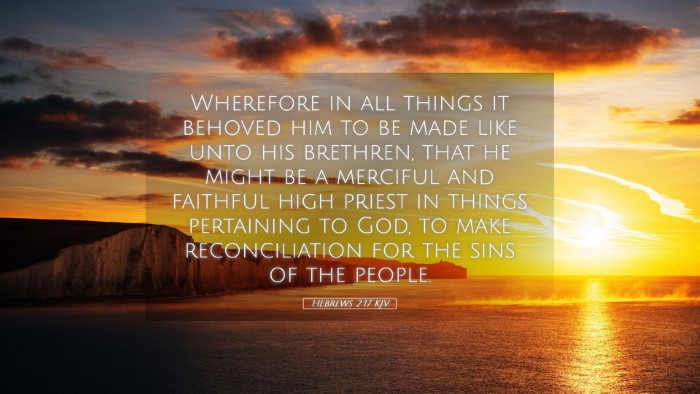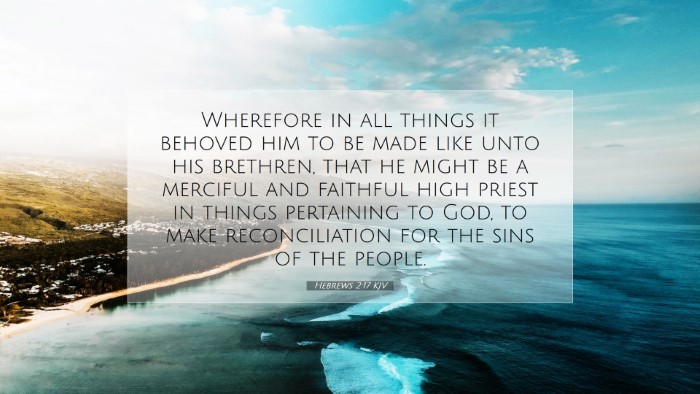Old Testament
Genesis Exodus Leviticus Numbers Deuteronomy Joshua Judges Ruth 1 Samuel 2 Samuel 1 Kings 2 Kings 1 Chronicles 2 Chronicles Ezra Nehemiah Esther Job Psalms Proverbs Ecclesiastes Song of Solomon Isaiah Jeremiah Lamentations Ezekiel Daniel Hosea Joel Amos Obadiah Jonah Micah Nahum Habakkuk Zephaniah Haggai Zechariah MalachiHebrews 2:17
Hebrews 2:17 KJV
Wherefore in all things it behoved him to be made like unto his brethren, that he might be a merciful and faithful high priest in things pertaining to God, to make reconciliation for the sins of the people.
Hebrews 2:17 Bible Commentary
Commentary on Hebrews 2:17
Verse Analysis: Hebrews 2:17 states, "Therefore, in all things He had to be made like His brethren, that He might be a merciful and faithful High Priest in things pertaining to God, to make propitiation for the sins of the people." This verse encapsulates the mystery of the Incarnation and the role of Christ as our High Priest.
Introduction
The epistle to the Hebrews emphasizes the supremacy of Christ, showcasing His divine nature while concurrently affirming His humanity. In Hebrews 2:17, the author articulates the necessity of Christ's full participation in human experience, highlighting two of His priestly attributes: mercy and faithfulness.
Contextual Background
Understanding this verse requires awareness of its context within the larger narrative of Hebrews. The author presents Jesus as the Son of God, superior to angels and the cornerstone of faith (Hebrews 1). Following a discussion on His sufferings and exaltation (Hebrews 2:9-10), this verse pivots to the functional implications of Christ’s humanity.
The Necessity of Christ’s Humanity
Both Matthew Henry and Albert Barnes provide insights into the necessity of Christ being "made like His brethren." This incarnation was essential for several reasons:
- Identification with Humanity: Henry notes that Christ had to become human to relate intimately with humanity’s struggles and to act as a perfect mediator.
- Mercy and Faithfulness: Barnes emphasizes that by sharing in our humanity, Christ becomes a merciful High Priest, capable of compassion because He experienced the trials we face.
- Propitiation: Clarke elaborates on the doctrine of propitiation, indicating that Christ's sacrifice appeased divine wrath, underscoring His dual roles as Priest and Sacrifice.
Merciful and Faithful High Priest
In examining Christ as a "merciful and faithful High Priest," we delve into His role in the atonement and in our ongoing relationship with God:
- Mercy: Henry explains that Christ’s mercy stems from His understanding of our frailties. He can sympathize with our weaknesses (Hebrews 4:15) because He endured temptation.
- Faithfulness: Clarke asserts that Christ’s faithfulness is seen in His unwavering commitment to fulfill God’s redemptive plan, serving as our intercessor and advocate.
Implications for Believers
Given that Christ is our High Priest, believers can draw several significant theological implications from Hebrews 2:17:
- Access to God: Because of Christ’s mediatorial role, believers are granted direct access to God (Hebrews 10:19-22). This access is not hindered by our sinfulness since Christ's sacrifice is sufficient.
- Empathy in Trials: Knowing that Christ understands human suffering provides comfort and encourages believers to rely on His strength in times of trouble.
- Inspiration for Service: As Christ modeled sacrificial love, believers are called to serve others with the same mercy and faithfulness, being conduits of grace within their communities.
Conclusion
Hebrews 2:17 presents a powerful declaration of Jesus Christ's identity and mission. His incarnation was not merely a theological necessity; it was an act of profound love aimed at reconciling humanity to God. As pastors, students, and theologians reflect on this verse, it serves as a reminder of the depths of Christ’s compassion and the faithfulness which calls believers to a life of mercy and devotion.
In the study of this verse, let us grasp the heart of our High Priest—who in His humanity experienced all that we face yet remained without sin—and encourages us to come boldly to His throne of grace.


